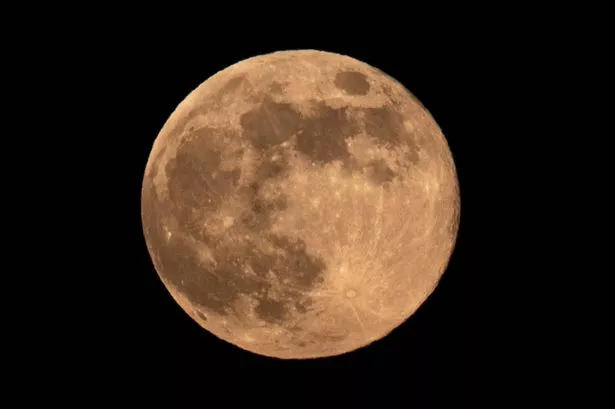UPDATE: As the Beaver Moon rises over the US this week, relationship experts warn of its potential impact on emotional well-being. Just announced, the full moon, set to be the brightest of the year, could trigger mood swings, miscommunication, and heightened tensions among couples.
This full moon, occurring in November 2023, is part of a series of supermoons and is expected to significantly affect hormonal balances. According to Mike Kocsis, a hormonal health expert at Balance My Hormones, the lunar cycle can stir emotional upheaval, making it crucial for couples to be aware of its effects.
Research indicates that full moons can disrupt sleep, even if individuals are unaware of it. The bright light can lead to spikes in cortisol levels and drops in serotonin, which are critical for maintaining emotional balance and sleep quality. Insufficient sleep can heighten emotional sensitivity, leading to increased conflict and misunderstandings among partners.
Kocsis emphasizes that even one partner experiencing hormonal shifts can create tension between couples. With cortisol signaling emotional distress, it can prompt arguments or even feelings of withdrawal. A full moon disrupts natural sleep cycles, causing cortisol to peak when it should be declining, which can lead to irritability and relationship strain.
The emotional glue that holds relationships together, known as oxytocin, also diminishes during this time. Stress and sleep disruptions can lead to decreased oxytocin production, resulting in feelings of disconnection and insecurity. Such shifts can exacerbate existing relationship issues, making conflicts over minor disagreements more likely.
Additionally, hormonal changes during the full moon can affect both men and women. Testosterone levels, crucial for mood and libido, may dip, leading to fatigue and further emotional challenges. For women, especially those experiencing menopause, these changes can amplify symptoms such as mood swings and decreased sexual desire.
It’s important for couples to adopt proactive strategies to navigate this lunar phase. Kocsis suggests prioritizing good sleep hygiene by establishing a calming bedtime routine and ensuring bedrooms are dark to minimize moonlight interference. Engaging in stress-reducing activities like yoga and meditation can also help manage heightened cortisol levels.
Kocsis advises couples to communicate openly about their feelings during this period. Acknowledging heightened sensitivity can foster understanding and patience between partners. He encourages avoiding major decisions or heated discussions during the full moon, as emotional responses may be amplified.
Instead of viewing the Beaver Moon as a trigger, Kocsis recommends using it as an opportunity for introspection and connection. Reflecting on emerging emotions can reveal deeper insights into relationships and individual needs.
As the Beaver Moon approaches, couples are urged to remain vigilant. By embracing empathetic and proactive approaches, this potentially tumultuous time can transform into a chance for deeper understanding and connection. Share this urgent alert with friends to help them navigate the emotional waters of this lunar event!






